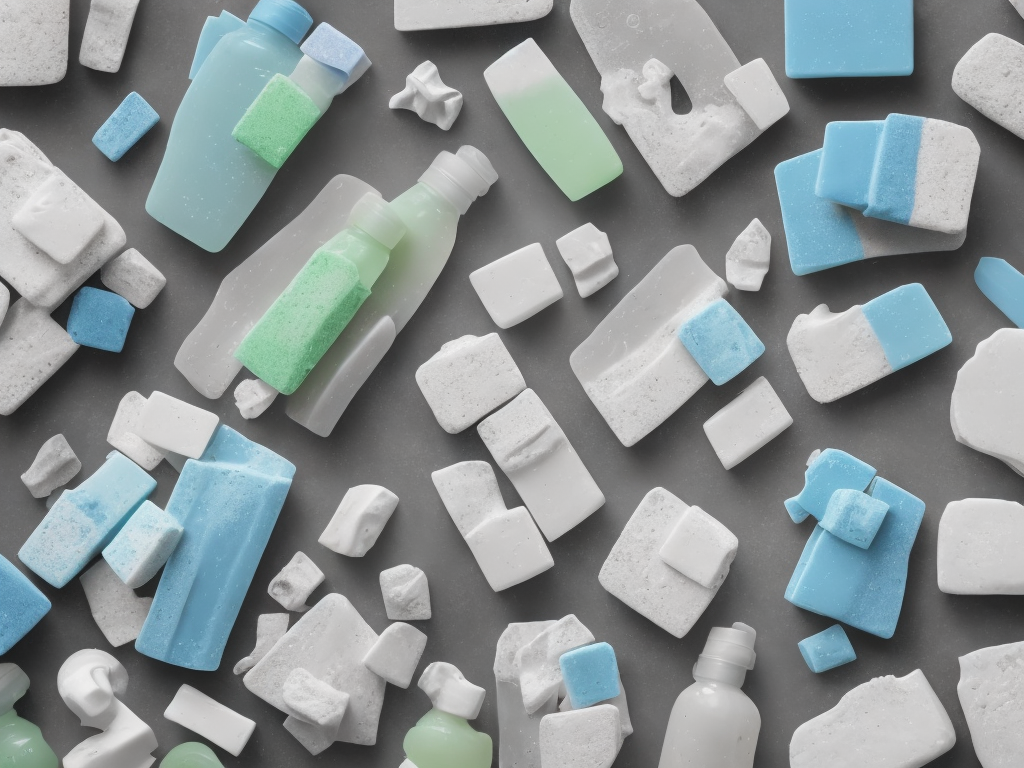
Soaps and detergents are household products most commonly used for cleaning, and to most people, they might seem to serve the same function. However, there are intrinsic differences between these two products that make each of them more preferable in different circumstances.
Soaps are traditional cleaning agents, developed way back in ancient times. They have a natural origin, with their main ingredients being fats and oils derived from plants or animals. In comparison, detergents are synthetic, and they emerged in the 20th century as a result of the need for alternative cleaning agents that are less labour-intensive and less expensive. Detergents consist of a synthetic ammonium compound, which is the active agent for removing dirt and grime.
Composition
Soaps and detergents differ in their chemical composition. Soaps are made through saponification, a chemical reaction between an alkali such as sodium hydroxide, and fats or oils to produce soap molecules and glycerine. The soap molecules consist of a polar head and a non-polar tail that makes it hydrophilic and hydrophobic, respectively. The polar head attracts water molecules while the non-polar tail repels water, allowing the soap to dissolve in water and attach to oil and dirt particles. Soap molecules are biodegradable and eco-friendly.
Detergents, on the other hand, are entirely synthetic and mainly consist of petrochemicals, which are non-renewable resources. They have a non-polar hydrocarbon tail and a polar functional group, which is the active cleaning agent. Unlike soaps, detergents do not form insoluble deposits and are less prone to leave soap scum in water. Detergents are cheaper, and they can be formulated as per the intended use. However, non-biodegradable detergents pose an environmental hazard because they cannot be broken down by microbes.
Uses
Soaps are commonly used for personal hygiene, such as bathing and handwashing. They are also used for general household cleaning, especially laundry. The soap’s ability to dissolve in water and grip onto oil is beneficial when dealing with oil-based stains.
Detergents are used mainly for cleaning tasks that require more effective cleaning power since they are more powerful than soap. They are best used in cleaning dishes, floors, tiles, carpets, and bathroom tiles, among other home cleaning tasks. Many laundry detergents have additional ingredients that help to whiten and brighten clothes.
Environment
Soaps are found to be more environmentally friendly since they are biodegradable and do not pose a threat to the ecosystem. Unlike soaps, many detergents are not biodegradable, which means that they cannot be broken down by bacteria or other microorganisms, making it difficult to dispose of and manage. Non-biodegradable detergents transform into microplastics, which make their way into oceans and other water sources, hence contaminating marine life and affecting the entire ecosystem. Some manufacturers now create biodegradable detergents to reduce their ecological impact.
Water Hardness
Water hardness is another factor that determines the effectiveness of soap or detergent. Hard water has a high amount of minerals like calcium and magnesium, which react with soap molecules to form insoluble deposits on surfaces. The insoluble deposit is the soap’s scum that many people are familiar with. Hard water reacts with soap, reduces its effectiveness, and limits lathering ability. Sodium-based detergents are not affected by hard water and still maintain their cleaning effectiveness. In contrast, ammonium-based detergents are affected by hard water and may require the addition of water-softening agents to function correctly.
Conclusion
Soaps and detergents are household products that serve several purposes. However, factors such as chemical composition, uses, environment, and water hardness influence their effectiveness. Their differences are felt concerning price, effectiveness, and eco-friendliness. When it comes to home cleaning tasks that require more potent cleaning power, detergents are more effective. On the other hand, soaps are better for tasks like personal hygiene and general household cleaning. Also, in terms of environmental impact, soaps are more eco-friendly compared to detergents. When choosing between the two products, it is essential to consider your specific cleaning requirements before making a decision.
 Self-Instruct
Self-Instruct